#Gaetano Majorano
Explore tagged Tumblr posts
Text

Caricature of Caffarelli, 1750 circa by Pier Leone Ghezzi (1674-1755)
17 notes
·
View notes
Text
APRI LE LUCI E MIRAAAAAAA
IL MIO COSTANTE AFFETTOOOOO
PER TE IL MIO COR SOSPIRAAAAAA
reblog w the song lyrics in your head NOW. either stuck in yr head or what yr listening to
#caffarelli#farinelli#castrati#baroque#vivaldi#catone in utica#aria#gaetano majorano#Carlo Broschi#antonio vivaldi
193K notes
·
View notes
Text

Castrato singer Gaetano Majorano (Caffarelli) carries the Teatro San Grisostomo with him by Zanetti (1680-1767)
The legend within the picture says: Il celebre Caffariello qui cantava à S. Giov. Crisostomo; e porta via il teatro i poi che finita la sua aria, si votava affatto (The famous Caffarelli who sang in the San Giovanni Grisostomo as he carries away the theatre with him, for after he finished his aria, the theatre quickly emptied out.)
At the San Giovanni Grisostomo in Venice Caffarelli sang in the following operas:
Berenice by Francesco Araia (1709-1770) - 26. December 1733
Merope by David Perez (1711-1778) - 19. November 1750
Arianna e Teseo by Girolamo Abos (1715-1760) - 26. December 1750
Didone abbandonata by Gennaro Manna (1715-1779) - 30. January 1751
#caffarelli#castrato#farinelli#castrati#baroque#gaetano majorano#classical music#carlo broschi#italian history#historical figures#history#music history
11 notes
·
View notes
Photo
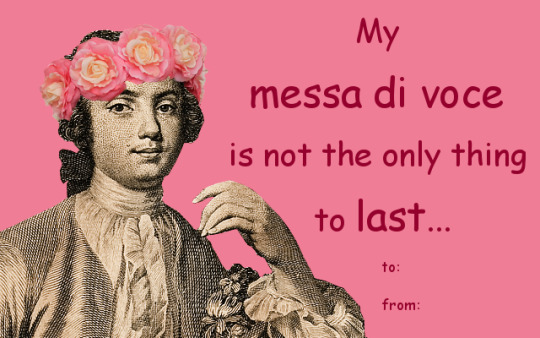
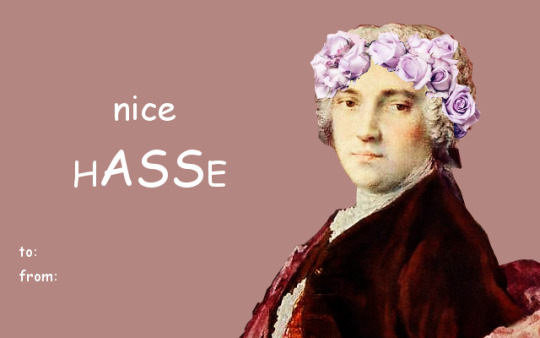
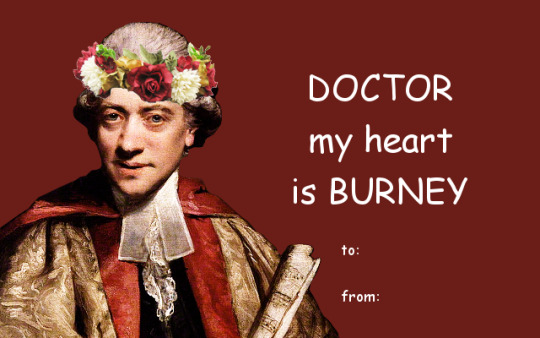
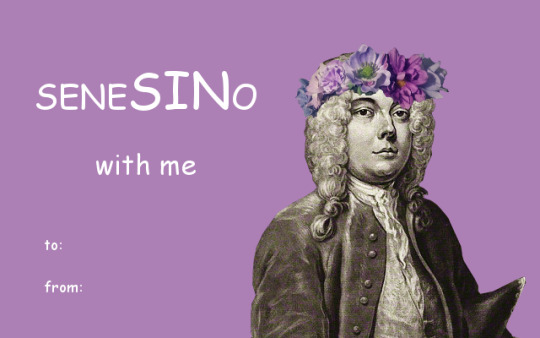
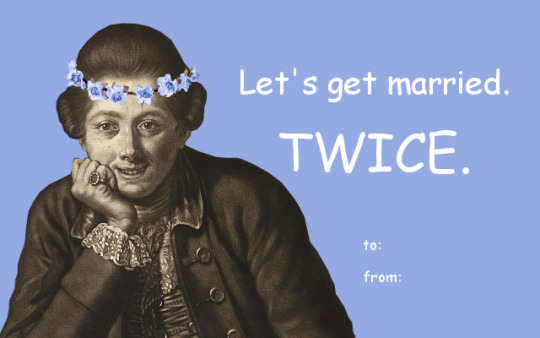
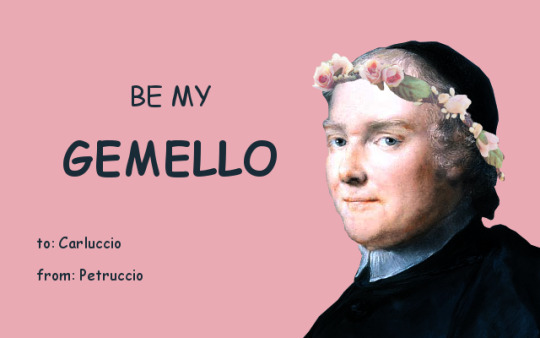
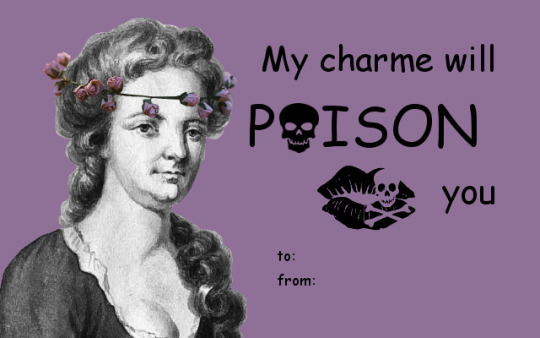
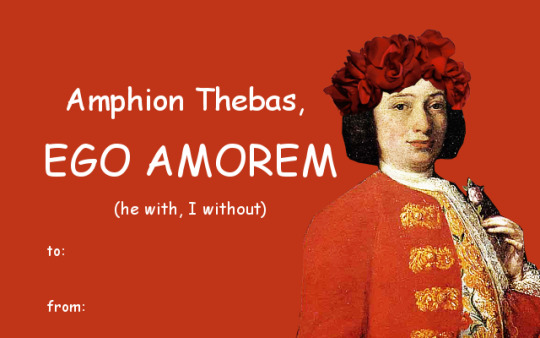
Opera seria - Valentine’s Day edition (with a help of De Castris )
#farinelli#Carlo Broschi#johann adolph hasse#Johann Adolf Hasse#charles burney#Senesino#francesco bernardi#giusto tenducci#giusto ferdinando tenducci#Metastasio#pietro metastasio#francesca cuzzoni#caffarelli#Gaetano Majorano#castrato#opera#opera seria#18 century#baroque#valentines#valentine's card#italian opera#history of music
24 notes
·
View notes
Photo
Look, I’m kissed by the Sun ☀️

Chanteurs célèbres du XVIIIe siècle et début du XIXe siècle avec chanteurs comme la contralto Vittoria Tesi et les castrati Farinelli, Caffarelli, Gizziello et Carestini par Antonio Fedi (ca. 1800).
Famous singers of 18th and early 19th centuries, with singers such as the alto Vittoria Tesi and the castrati Farinelli, Caffarelli, Gizziello and Carestini by Antonio Fedi (ca. 1800).
86 notes
·
View notes
Text
Serie Los Castrati: ¿Quiénes fueron los más famosos? Sus vidas (7) -
Serie Los Castrati: ¿Quiénes fueron los más famosos? Sus vidas (7) –
Por Víctor Fernández. Pulse aquí para leer las Partes precedentes de la Serie. Gaetano Carmine Franceso Paolo Majorano, Caffarello -o Caffarelli-, nació en Bitonto, provincia de Bari, Italia, el 12 de abril de 1710. Era hijo de un humilde agricultor, y ese habría sido su destino de no ser por un profesor de música llamado Domenico Caffaro (de quien tomó su nombre artístico), que fue quien notó el…

View On WordPress
0 notes
Text
January 31 in Music History
1573 Birth of German composer Ambrosius Metzger in Nuremberg.
1573 Birth of composer Giulio Cesare Monteverdi.
1679 FP of Jean-Baptiste Lully's opera Bellerophon, at Paris Opera.
1727 FP of G. F. Handel's opera Admeto re di Tessaglia at the Haymarket Theater in London.
1734 Birth of composer Julien-Amable Mathieu.
1750 Birth of tenor Franz Christian Hartig.
1759 Birth of French flutist, bassoonist and composer Francois Devienne in Joinville.
1783 Death of castrato Caffarelli (Gaetano Majorano).
1784 Birth of Prussian composer Carl Wilhelm Henning.
1788 Death of Italian composer Francesco Maria Zannetti, at 50.
1797 Birth of Austrian composer Franz Schubert in Vienna.
1798 Birth of German conductor and composer Carl Gottlieb Reissiger.
1827 Birth of soprano Marie Cabel.
1836 Birth of Polish composer Henryk Szulc.
1854 Birth of American composer, pianist William Hall Sherwood.
1872 Birth of American composer Rupert Hughes.
1881 Birth of tenor Anton Arnold.
1882 Birth of baritone Peter Dawson.
1891 Birth of German composer Max Drischner.
1894 FP of S. Rachmaninoff's Trio élégiaque No. 2 in d minor, for violin, cello, and piano, in Moscow, with Julius Conus, violin; Anatoly Brandukov, cello and Rachmaninoff at the piano in Moscow.
1895 Birth of tenor Otakar Macha.
1901 Birth of Slovenian composer Blaz Arnic.
1906 Birth of English composer Benjamin Frankel in London.
1906 FP of Frederick Sheperd’s opera The Pipe of Desire, Op.21.
1910 Death of tenor Gustav Walter.
1913 Birth of Argentinian composer Hector Iglesias Villoud in San Nicolás.
1916 Birth of soprano Rina Gigli in Naples.
1921 Birth of American motion picture actor and tenor Mario Lanza.
1922 Death of Austrian composer Heinrich Reinhardt, at age 56.
1923 FP of Delius' Cello Concerto in Vienna by Alexander Barjansky, Ferdinand Lowe, cond.
1925 FP of Vladimir Dukelsky's ballet Zéphir et Flore in Paris. He composed popular music under the name Vernon Duke.
1935 Birth of Bulgarian composer Bojidar Dimov in Lom.
1935 FP of Mario Castelnuovo-Tedesco's Cello Concerto. New York Philharmonic, with cellist Gregor Piatigorsky.
1937 Birth of American minimalist composer Philip Glass in Baltimore, MD.
1943 FP of Richard Strauss' Divertimento on pieces by Couperin in Vienna.
1945 Birth of American composer Noah Creshevsky.
1947 Birth of American composer Jim Nollman.
1948 Birth of bass Kolos Kovacs.
1952 FP of Leon Kirchner's Sinfonia in NYC.
1953 FP of Vittorio Giannini's opera The Taming of the Shrew, as concert work, in Cincinnati, OH.1955 Birth of tenor Robert Gambill.
1955 Death of tenor Frantisek Krampera.
1960 Birth of English composer and pianist George Benjamin in London.
1965 Birth of Israeli-born Canadian cellist Ofra Harnoy.
1969 Death of composer Alexander Mikhaylovich Dzegelyonok, at age 77.
1972 Death of conductor Howard Barlow, conductor for many years of radio's Voice of Firestone, at age 79.
1972 Death of Hungarian composer Istvan Szelenyi, at age 67.
1973 Death of mezzo-soprano Giuseppina Zinetti.
1975 Death of soprano Elsa Alsen.
1978 Death of soprano Margit Angerer.
1986 FP of Joan Tower's Piano Concerto Homage to Beethoven.Hudson Valley Philharmonic Chamber Orchestra conducted by Imre Pallo, Jacquelyn M. Helin, piano.
1987 FP of David Maslanka's Wind Quintet No. 2. Manhattan Quintet at Carnegie Hall's Weill Recital Hall in NYC.
1989 Death of Japanese composer Yasushi Akutagawa, at age 63.
1994 Barcelona opera theater Gran Teatro del Liceo burns down.
3 notes
·
View notes
Text
Coff coff

53 notes
·
View notes
Text

Fuori, le voci e le risa argentine delle donne, le grida sonore degli uomini e dei ragazzi, i richiami melodiosi dei venditori ambulanti componevano l'usuale e necessario corollario della vita del vicolo che si muoveva a latere di quella aristocratica e protetta all'interno delle stanze assorte e severe dell'elegante palazzo a due passi da via Toledo, sul cui alto e maestoso portale un'ampollosa iscrizione ne dichiarava l'origine, ne indicava la paternità, ne rivendicava il possesso attraverso un'orgogliosa e vittoriosa affermazione personale. Anche il palazzo stesso rappresentava un premio, il soddisfacimento ambizioso di un progetto di vita pagato a caro prezzo molti anni prima e che compensava, col possesso di beni, la perdita di altro bene: "Amphion Thebas, ego domum: Anfione (costruì) Tebe, io (la mia) casa". Confrontata con l'unicità e la particolarità del suo autore, tale iscrizione non mancava di suscitare ilarità, di sollecitare salaci commenti, di muovere critiche invide e maliziose.
- Notturno Barocco: il Tesoro di Caffarelli (Domenico Sapio)
3 notes
·
View notes
Text
Bored. That reminds me the time I was hiding in a well to escapade from an angry husband.
Feel free to ask me whatever you want. The Giove Musicale is ready to answer you, give advices or sexting *wink*
3 notes
·
View notes
Text
Some info
The castrati of Italy were boys and young men castrated prior to, or (more rarely) at the onset of, puberty in order to preserve a the high singing voice of a pre-pubertal boy, eventually coupled with the force and power of an adult body. What is exceptionally noticeable about the way the castrati were discussed at the time, is the overlap that both the veneration and discrimination they experienced has echoes in modern discussions surrounding trans men.
Castrati themselves articulated their own relationships to gender in many different ways, though all seem to have defined themselves within a spectrum of masculinities. One example comes from Filippo Balatri, who wrote a series of diaries, letters and memoirs in which he directly addresses the complexities of both his own perception of gender and having to navigate a world that does not fully understand him.
In one part of his autobiography, which was based on the earlier diaries, he writes about journeying with the Russian czar to visit a khan in the city of Astrakhan. The khan becomes enraptured by Balatri’s voice- referring to him as ‘ominessa’ (femme-man, an invented word). He puts Balatri on the spot by both asking his sex, and where he could find such a singer of his own. Balatri explains as follows:
He started by asking me whether I was male or female, and where from, whether such people are born (or rain down) with a voice and ability to sing. I was all confused about how to answer. If ‘male’ I’m practically lying, if ‘female’ still less do I say what I am, and if ‘neuter’ I would blush. But, screwing up my courage, I finally answer that I’m a man, Tuscan, and that cocks are found in my region who lay eggs, from which sopranos come into the world; that these cocks are called norcini(note: a play on words, as Norcia was a region famous for skilled castration of their farm animals), who go on brooding for many days among our people; and that once the capon is made, the eggs are festooned with flattery, caresses and money.
Paraphrased and quoted from The Castrato: Reflections on Natures and Kinds by Martha Feldman.
#history of gender#castrati#musical history#italian history#caffarelli#farinelli#baroque#gaetano majorano#classical music
73 notes
·
View notes
Text

Kinda fun. I am not a cultivated castrato like Berenstadt, but I recall something called critique, that’s the act of talking about a piece of art, a score, music and so on. But also, if I am not mistaken, when people visit some sort of gallery or museum they like… Talk about the arts they are in front of? So, yeah, imagine being not allowed to speak in front the Gioconda! Imagine going to an exhibition and not being allowed to joke or do something like this:
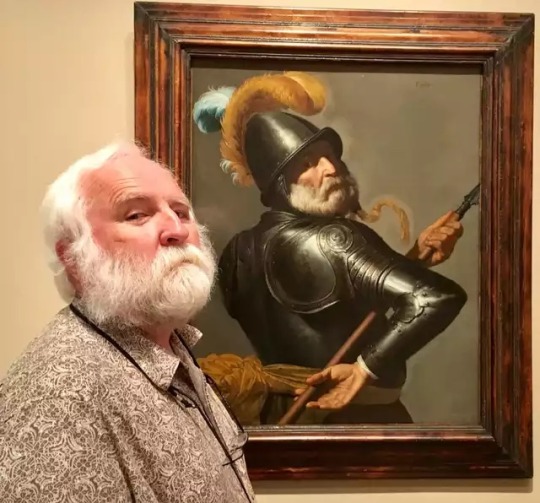
So, yes, imagine if you hung your painting in a gallery and someone poses on front of it, talks about it, jokes about it… How disgraceful.
Well then, since I am here to share some knowledge about me and the world of castrati have some links:
Gaetano Majorano’s portrait
Gaetano's House
Gaetano's caricature
#gaetano majorano#caffarelli#farinelli#castrati#baroque#classical music#carlo broschi#facts#idiots#museum#art
5 notes
·
View notes
Text

@cbfarinelli with love ❤️
5 notes
·
View notes
Text

Very poor quality portrait of Gaetano Majorano, known as Caffarelli.
I actually think this is not Caffarelli. It is barely recognizable, but it seems he has Adam's apple and, as we know, its growth it is not possible in a castrato.

Also musicians, composers or singers are typically portrayed with instruments, scores or Muses, but here we have what it appears to be some sort of document without any reference to music. Actually due to the quality of the file we cannot be sure what's written, but I can't see any note.

Last, but not least, the crest. I don't know if someone has a better knowledge about it, but I can't find any info about it. Stripes seem to resemble the ones on the Borbonic crest, but it doesn't have any stars. Moreover Majorano, Maiorano, Maiorana crest it's quite different:

Here we can see three stars as above, but not stripes.
1 note
·
View note
Photo
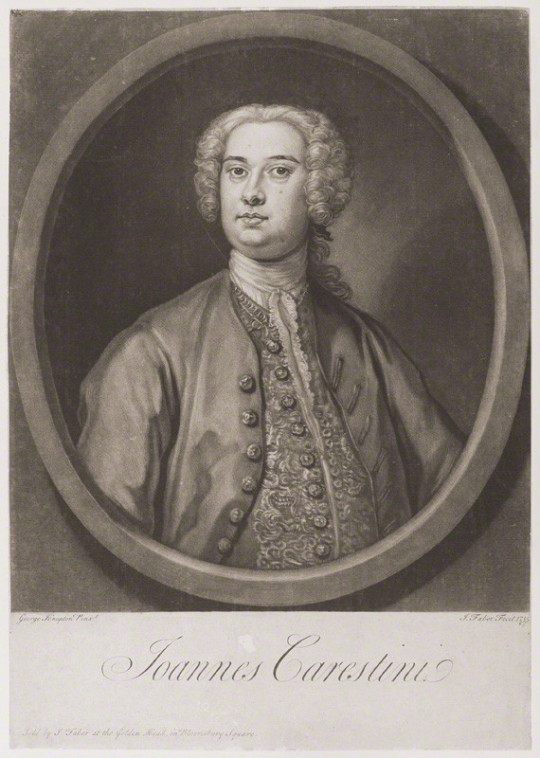



The brief history of Castrati - part three (part one, part two)
Serious opera in the first two-thirds or so of the 18th century was dominated by a succession of famous castratos, of whom Nicolo Grimaldi (’Nicolini’), Antonio Maria Bernacchi, Francesco Bernardi (’Senesino’), Carlo Broschi (’Farinelli’), Giovanni Carestini, Gaetano Majorano (’Caffarelli’) and Gaetano Guadagni are only the best known. Such artists could command engagements in one European capital after another at unprecedented fees - in Turin the primo uomo’s fee for the carnival season was sometimes equal to the annual salary of the prime minister - while they also kept, as insurance, permanent appointments in a monarch’s chapel choir or a cathedral, and some of them performed there regularly.
Their achievements are now difficult to gauge. Their command of vocal agility - of trills, runs and ornamentation, especially in the da capo section of an aria was clearly central to their success. So, at least for some, was a phenomenally wide range: Farinelli is said to have commanded more than three octaves (from c to d'''), others more than two, though, like some modern sopranos and tenors, they were apt to lose the upper part of their range as their careers wore on. It would, however, be a mistake to regard leading castratos as vocal acrobats and no more. Command of pathetic singing - soft, laden with emotion, powered by controlled devices such as messa di voce - was highly regarded: it was, for instance, central to the reputation of Gasparo Pacchiarotti. Nor was acting ability ignored: Guadagni’s performance as Gluck’s original Orpheus was thought deeply affecting. The issue is clouded by the habit of commentators through most of the 18th century of bemoaning the supposed decadence of opera through an excessive cult of vocalism and ornamentation. This was in part a literary convention. The cult flourished, and was in practice forwarded by some of those who decried it.
Another contemporary habit that needs to be guarded against is that of mocking the castratos as grotesque, extravagant, inordinately vain near-monsters. This was in part a nervous reaction against a phenomenon experienced as sexually threatening twice over: the fact of castration was disconcerting in itself, yet according to legend (held by most modern medical opinion to be baseless, though perpetuated, along with much traditional obfuscation, in the 1995 film Farinelli) castratos could perform sexually all the better for the loss of generative power. In part the mockery visited upon castratos was roused by highly paid star singers in general, among whom they were the most prominent. Because of their musical education they often did well as teachers; some who had also had a general education acted in retirement, or even during their singing careers, as antiquarian, booksellers, diplomats, or officials in royal households.
#source: the new grove dictionary of music and musicians#castrati#castrato#history#history of music#opera#opera seria#italian#Giovanni Carestini#francesco bernardi#Senesino#Carlo Broschi#Farinelli#gioacchino conti#gizziello#18 century#18 century art#18 century music
10 notes
·
View notes
Photo

Happy New Year!
#from giove with love#caffarelli#Gaetano Majorano#castrato#castrati#18 century#opera#baroque#happy new year
4 notes
·
View notes